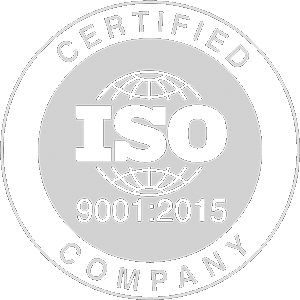PTFE for diverse applications plays a foundational role in modern human life, enabling the technologies and conveniences we often take for granted. From insulating electrical wiring to filtering blood and water, PTFE’s chemical resistance, thermal stability, and low friction make it indispensable across countless industries. It’s found in everything from food contact articles and heating systems to electric vehicles and filtration membranes. This extraordinary material continues to support the safety, efficiency, and comfort of the modern world.
- Versatile Material Properties: Suitable for use in everything from electronics to consumer products.
- Thermal Resistance: Performs reliably in high and low temperatures.
- Non-Stick Surface: Prevents residue buildup and allows for easy cleaning.
- Chemical Inertness: Resists degradation from household and industrial chemicals.
- Low Friction: Minimizes wear and energy loss in mechanical components.
- Aerosol Lubricants: PTFE is used as a solid lubricant in aerosol form to reduce friction and wear in various mechanical systems.
- Aircraft Interiors: PTFE coatings are used for non-stick surfaces in aircraft galleys and interiors to prevent the adhesion of food and dirt.
- Automotive Industry: PTFE is used in automotive applications, including bearings, bushings, gaskets, and seals, to improve the efficiency and longevity of components.
- Bearings and Bushings: PTFE-based bearings and bushings are used in various mechanical equipment to reduce friction, wear, and maintenance requirements. They are self-lubricating and provide durability.
- Chemical Containers: PTFE is used to line chemical containers, tanks, and pipes to protect against chemical corrosion and prevent contamination.
- Coatings: PTFE coatings are applied to various surfaces, including cookware, industrial equipment, and machinery parts, to reduce friction, prevent sticking, and resist corrosion.
- Conveyor Belts: PTFE-coated fiberglass is used to make conveyor belts for processes involving heat, such as food processing, where non-stick and heat resistance are crucial.
- Food Processing: PTFE is used in food processing equipment, such as non-stick baking sheets, conveyor belts, and seals, to ensure food doesn’t stick and contamination is minimized.
- Gaskets and Expansion Joints: PTFE gaskets and expansion joints are used to maintain seals in pipes, ducts, and expansion points, even in harsh chemical and high-temperature conditions.
- Insulation Materials: PTFE is used in electrical and thermal insulation applications due to its excellent electrical insulating properties and resistance to high temperatures.
- Marine Industry: PTFE is used in marine applications for non-stick coatings on boat hulls, propellers, and underwater equipment to reduce fouling.
- Mining Industry: PTFE is employed in mining equipment, such as bearings and bushings, to withstand harsh conditions and reduce maintenance needs.
- Printing Industry: PTFE is used in the printing industry for release liners, non-stick belts, and as a protective covering on rollers to prevent ink buildup.
- Pump Components: PTFE components like impellers, diaphragms, and seals are used in pumps to handle corrosive and abrasive fluids.
- Seals and Gaskets: PTFE gaskets and seals are used in numerous industrial applications to create leak-proof seals, particularly in chemical and high-temperature environments.
- Tape and Films: PTFE films and tapes are used for anti-chafe applications, as release liners in the printing industry, and for electrical insulation purposes.
- Textile Industry: PTFE-coated fabrics are used for heat-resistant and non-stick conveyor belts in textile manufacturing, especially in drying and curing processes.
- Valve Components: PTFE valve seats, O-rings, and diaphragms are used in valves across different industries for their chemical resistance and sealing properties.
- Widespread Utility: Used in a broad range of industries and daily-use items.
- Improved Product Lifespan: Enhances durability in consumer and industrial applications.
- Safety and Hygiene: Non-toxic and FDA-compliant in food and medical environments.
- Efficiency Gains: Reduces friction and energy use in mechanical systems.
- Maintenance Reduction: Resists sticking, fouling, and chemical breakdown.
Across chemical processing, electrical insulation, and mechanical components, PTFE delivers exceptional reliability and versatility, making it a cornerstone material in diverse industrial sectors.
